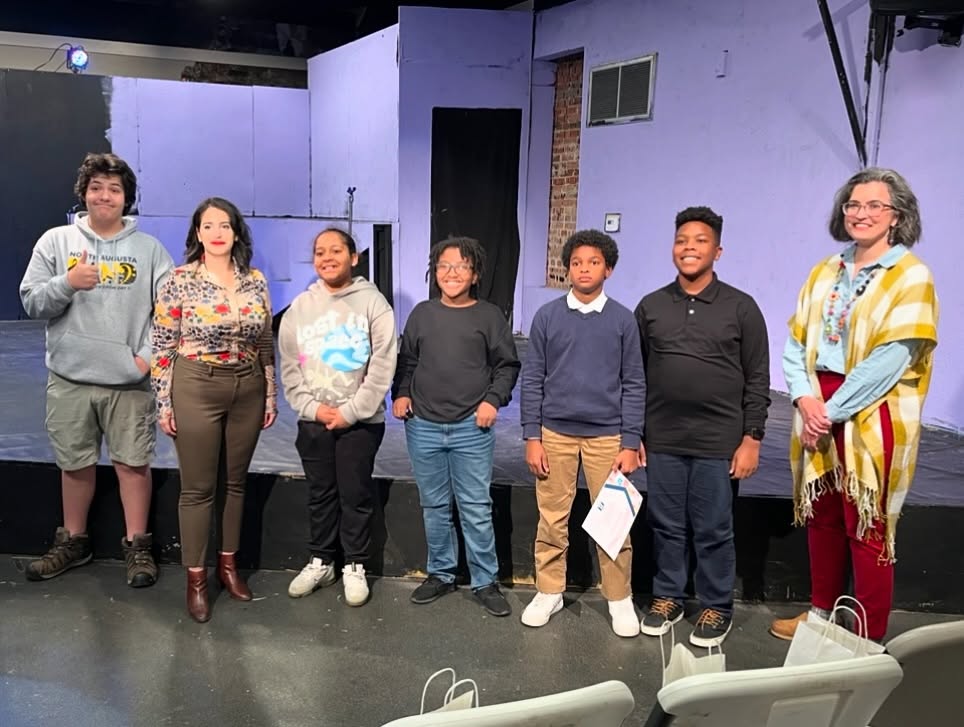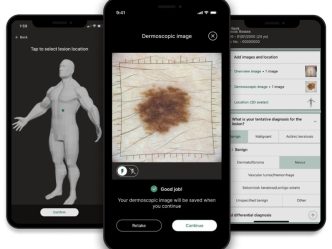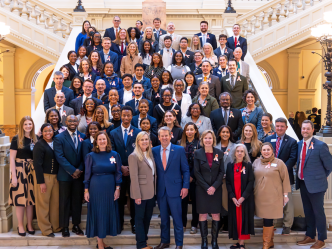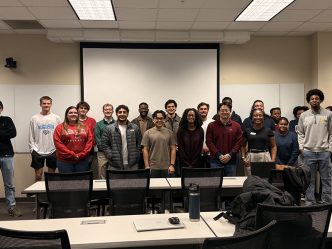The Fall 2024 Writing Wednesdays program at the Jessye Norman School of the Arts offered a unique opportunity for Augusta youth to explore the world of creative writing in a collaborative, supportive environment. The goal of the program was not only to develop writing skills but also to inspire confidence and a sense of creative ownership in each student.
Designed for students between the ages of 10-17 years, the semester-long initiative was a partnership between faculty in the Department of English and World Languages of the Katherine Reese Pamplin College of Arts, Humanities, and Social Sciences, AU’s Office of Community Engagement, alumni, community writers and the Jessye Norman School. The program introduced students to a variety of genres of writing, including poetry, fiction, nonfiction and playwriting, allowing them to hone their skills and ignite their creativity.
Over the semester, students participated in hands-on exercises that encouraged exploration and experimentation. Faculty devoted three weeks to teaching each genre, with the semester culminating in a showcase on Dec. 4 where students proudly read their work aloud to an audience of teachers and friends.
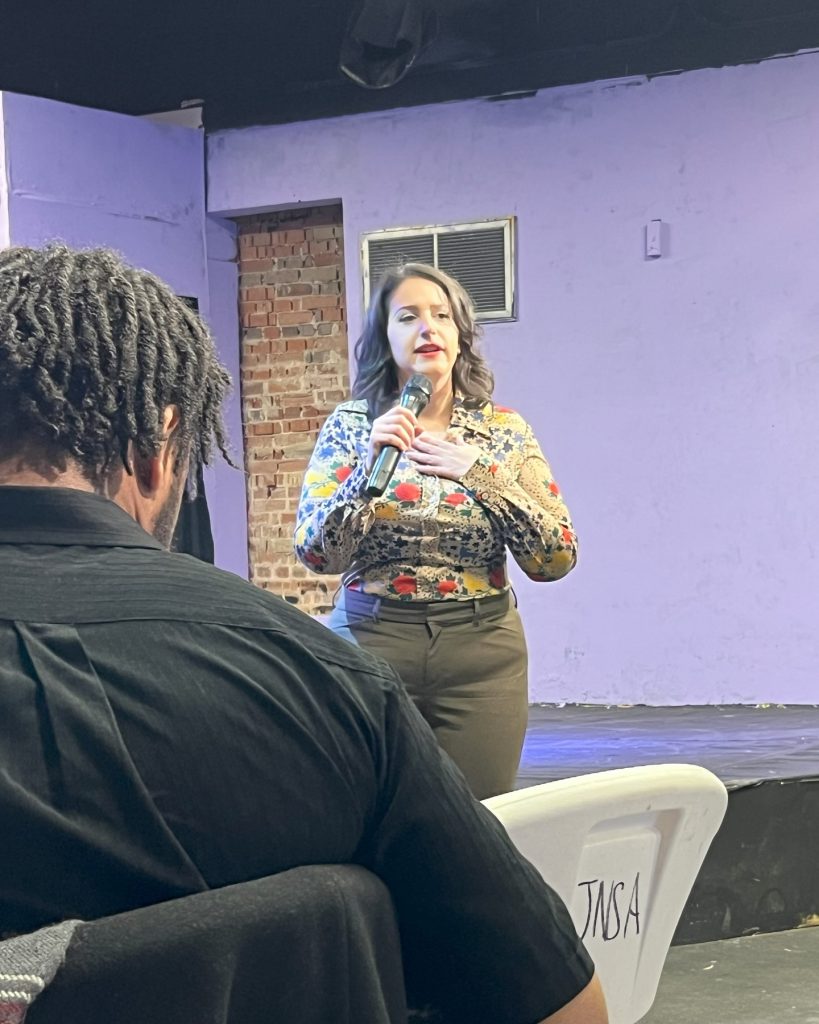
Augusta University faculty members Daphne Maysonet, Anna Harris-Parker, Latria Graham and Spencer Wise, PhD, and adjunct faculty member Kristie Johnson led the sessions alongside guest instructors, including poet and social worker Aaron Snow. Each instructor brought their expertise and passion to the table, guiding students through the nuances of their chosen genre.
“Creative writing faculty were excited to take their expertise outside of the university to support the growth of young writers,” said Candis Bond, PhD, interim chair of the English and World Languages department. “Our department values partnering with the community to add to the creative culture of Augusta, and this is a great example of the energy and fun that can come out of these kinds of partnerships.”
Maysonet, Harris-Parker and Snow led the poetry block. Snow, who recently graduated with his Bachelor of Social Work degree in Pamplin’s Department of Social Sciences, brought a unique perspective to the program, blending his background in social work with his love of poetry. He encouraged students to view writing as a tool for self-expression and emotional exploration rather than an exercise in rigid technique.
One particularly memorable moment came when a student, inspired by a photo prompt, decided to write a short story instead of a poem. Snow, who welcomed creative freedom, supported the student’s choice, underscoring the program’s emphasis on nurturing imagination.
“A student came up to me, looked at the photo, and said, ‘I think I’d rather write a short story than a poem. Is that OK?’ said Snow. “I told them, ‘Of course!’ Since my focus was on sparking creativity rather than sticking strictly to poetry, I was happy to support their choice. They spent about 30 minutes writing and then came back, asking, ‘Can I read it to you?’ I said, ‘Absolutely!’ It was amazing to see them dive into their own creative process.”
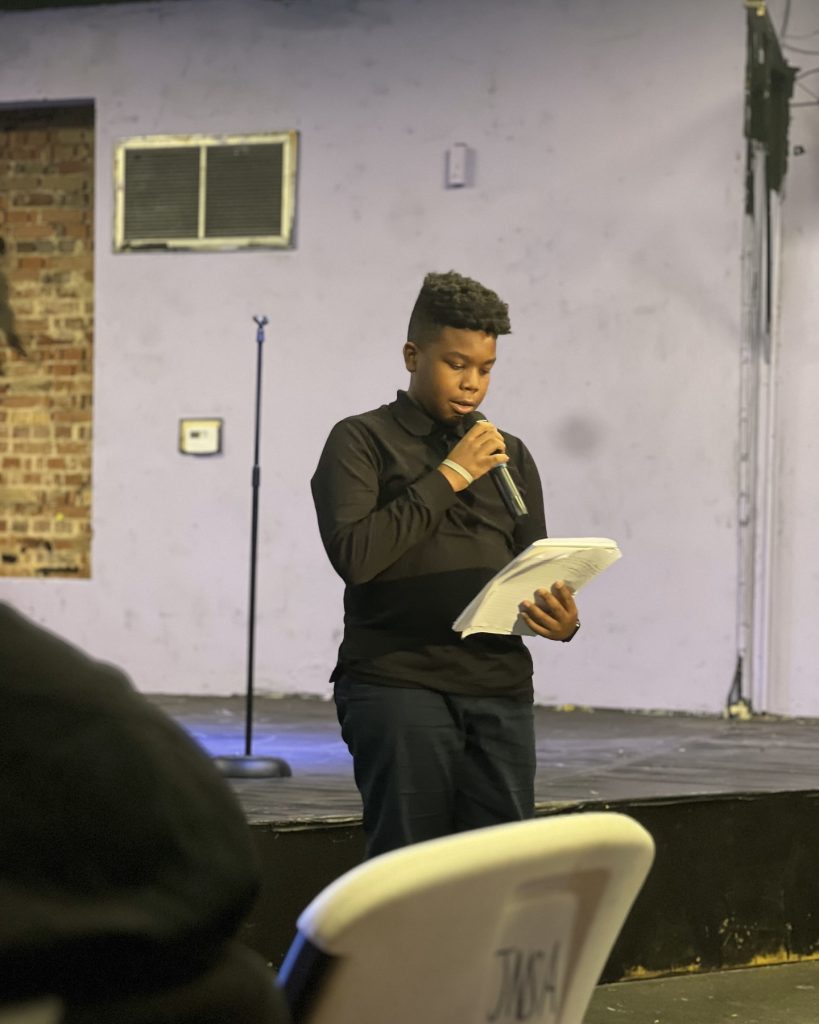
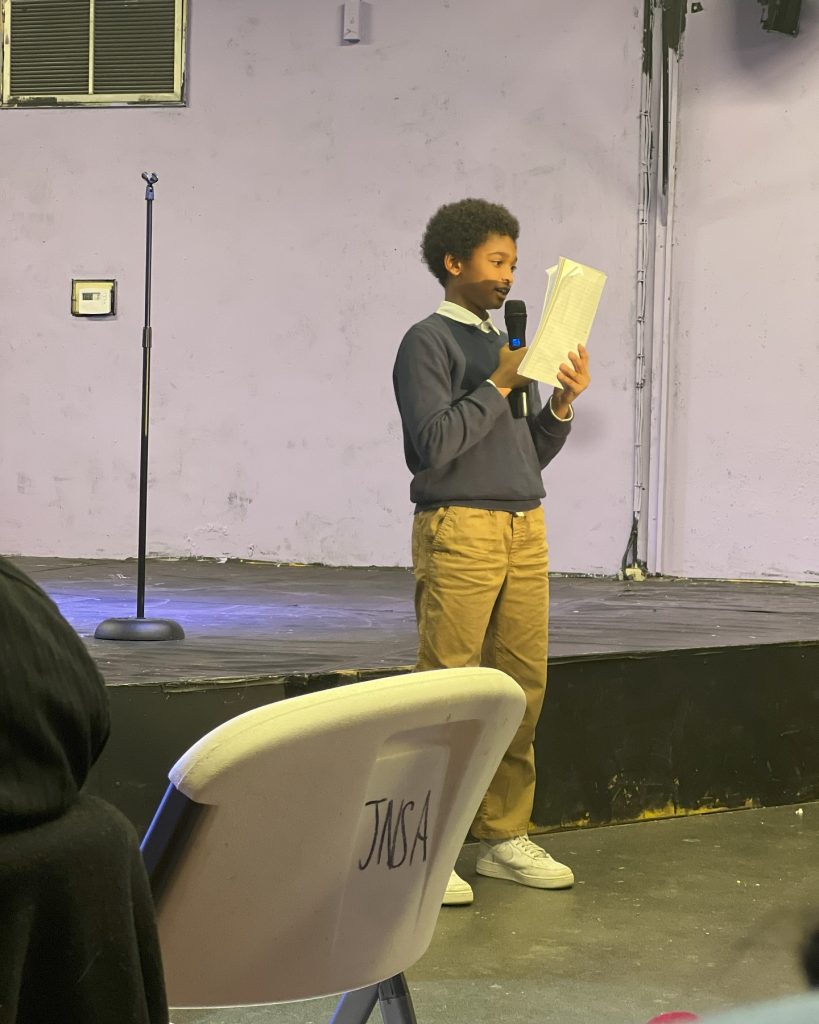
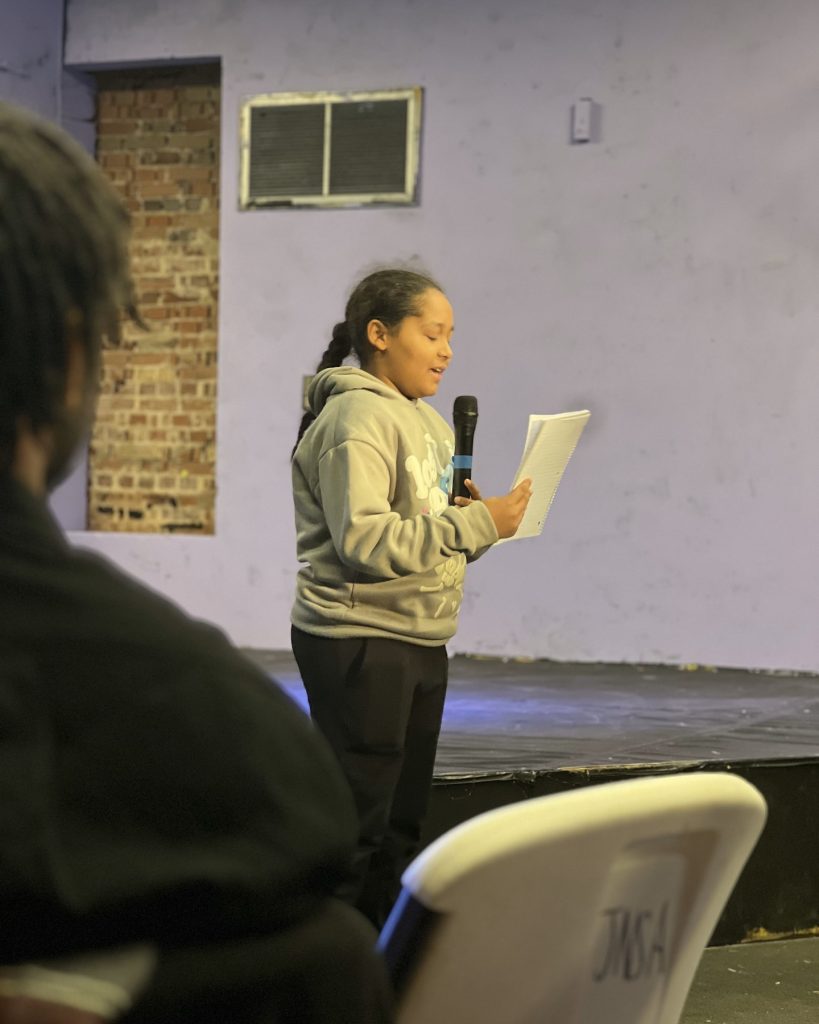
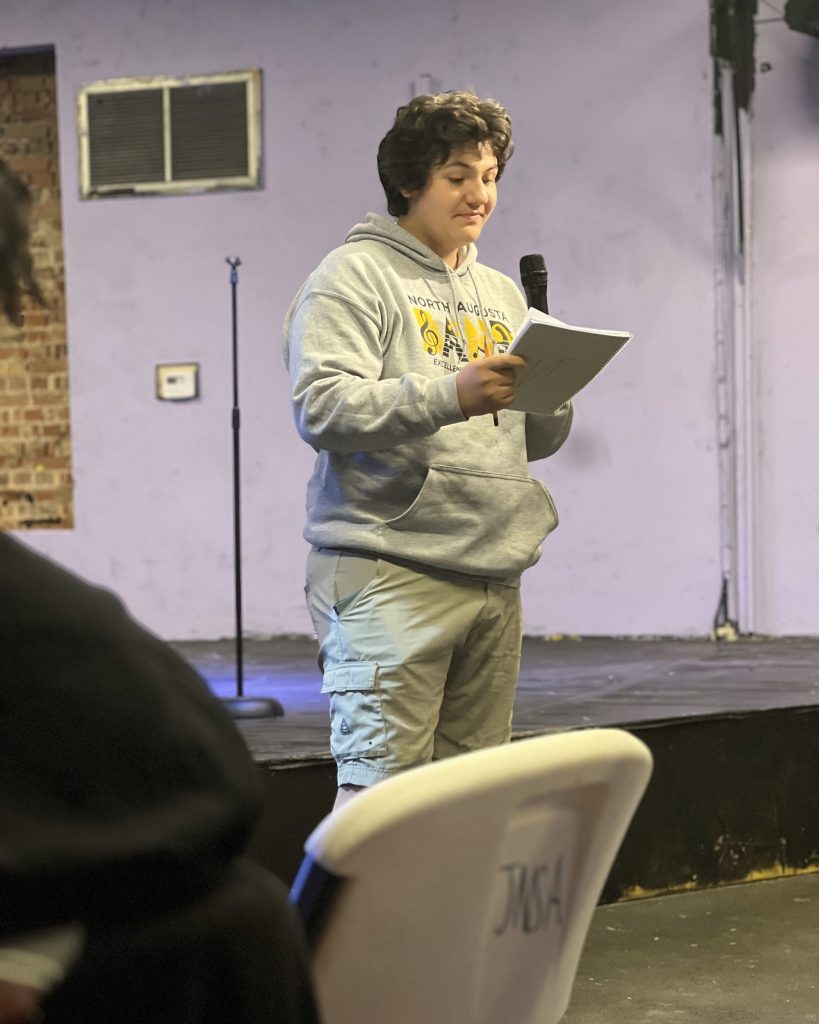
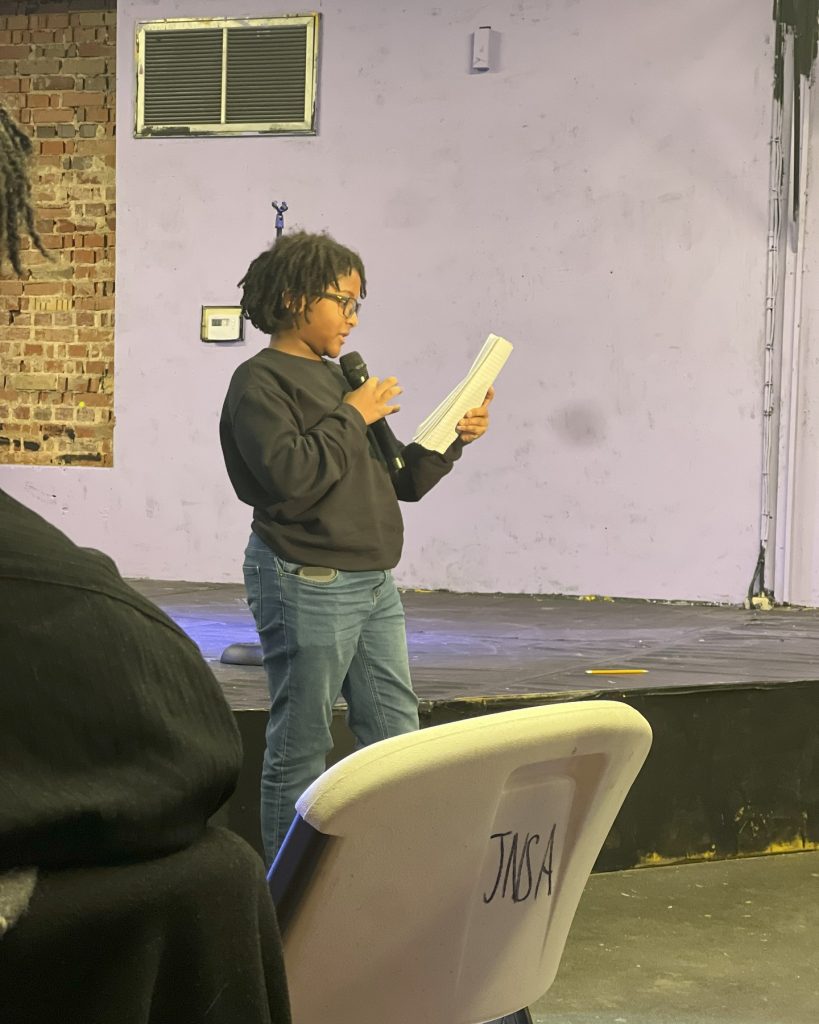
For fiction and playwriting, Graham and Wise guided students through the process of creating compelling characters and narratives, while Don Cleary, a community volunteer, helped bring the world of drama to life by encouraging students to craft plays that reflected their personal stories.
In nonfiction, Johnson and Maysonet helped students write reflective essays and memoirs that connected their lived experiences with broader themes.
Throughout the program, instructors emphasized the power of writing. For many students, the act of writing became an outlet for processing emotions and gaining self-awareness.
Gary Dennis, executive director of the Jessye Norman School of the Arts and one of the program’s biggest supporters, pointed out these small achievements in creativity helped boost students’ self-esteem, leading to greater confidence in their personal lives.
“All of those achievements roll up to confidence, and that confidence rolls up to a better life,” Dennis said, highlighting the long-term impact of creative expression.
As the program came to a close, instructors like Maysonet and Harris-Parker hoped that the students left not only with enhanced writing skills but also with a sense of inspiration and self-worth.
“I hope they came away feeling inspired — not only creatively but also as young people who were eventually growing into adults with careers,” said Maysonet.
Harris-Parker added, “Being honest in your work creates a stronger connection with people, and that honesty can make a powerful impact.”
The success of Writing Wednesdays sparked plans for future expansion, ensuring young writers in Augusta will continue to have opportunities to develop their craft in a nurturing and creative environment.
The Jessye Norman School of the Arts is an after-school program designed to develop and nurture the artistic and creative talents of students. The School of the Arts serves the cultural and educational needs of these youth by providing:
- Tuition-free fine arts instruction
Academic tutoring
An opportunity for advanced level study in dance, drama, music, art, creative writing and more
Exposure to professionals working within the arts fields
Information on possible careers in the arts
Knowledge of technical aspects of presentation and performance
 Augusta University
Augusta University
